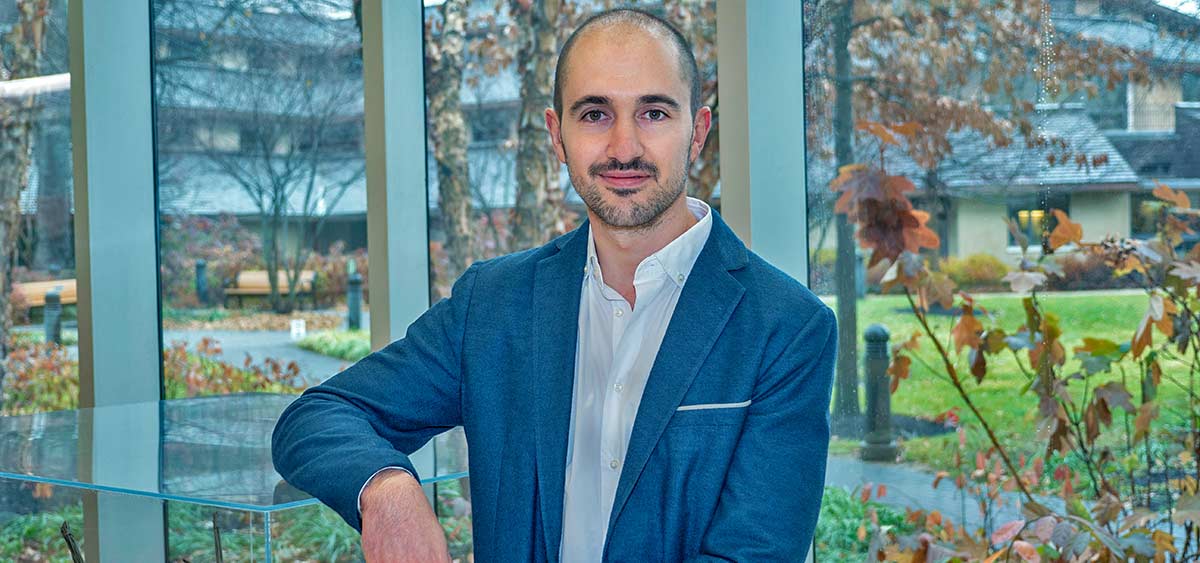
PHILADELPHIA (April 23, 2020)— Israel Cañadas, PhD, an assistant professor in the Blood Cell Development and Function Research Program at Fox Chase Cancer Center, recently transferred a grant that will allow him to study how different cancer cells within a tumor may affect the environment around it and the tumor’s response to therapy.
The grant was awarded to Cañadas by the Lung Cancer Research Foundation in 2018 and was transferred after Cañadas began his own lab focusing on tumor immunity and microenvironment at Fox Chase last year. The grant awards Cañadas a total of $150,000 over two years.
“Both small-cell and non-small cell lung cancers contain different subpopulations of cancer cells, a feature known as tumor heterogeneity. Although this cell heterogeneity is a key determinant of cancer progression and drug resistance, how it impacts the immune system in lung cancer patients remains incompletely defined,” Cañadas said. “This project is highly relevant because it could directly improve outcomes for lung cancer patients.”
The research is predicated on a group of genetic elements known as endogenous retroviruses (ERVs). These ERVs become altered in certain drug-resistant populations of lung cancer cells. His work has shown that signaling from ERVs promotes tumor growth; but at the same time, the retroviruses can also make cancer cells vulnerable to immunotherapy.
Cañadas is seeking to connect the drug-resistant cancer cell state to the activation of ERVs and use this information to develop new drugs that could enhance a tumor’s response to immunotherapy.
“The proposed strategy addresses a key unmet need in the field in an effort to overcome resistance to immunotherapy due to intra-tumoral heterogeneity. If the proposed preclinical research shows promising results, we will be directly positioned to open a clinical trial in lung cancer patients using effective combination therapies,” said Cañadas.
Although the research will be focused primarily on lung cancer, Cañadas expects his research findings will impact the treatment of other cancer types that are similarly characterized and driven by different cancer cells within a tumor.